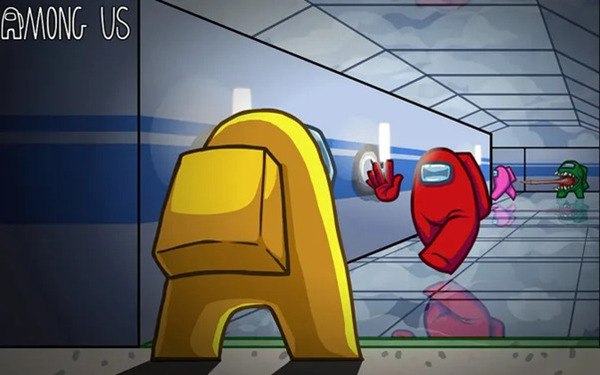Advertisement
Popular Now
Among Us has emerged as a cultural phenomenon, captivating players with its unique blend of social deduction and strategy. While the game centers around Crewmates completing tasks and an Impostor attempting to sabotage them, the heart of its appeal lies in the intricate social dynamics that unfold during play. This article will delve deeply into the specific issue of trust and deception in Among Us, examining how players navigate these complexities, the strategies they employ, and the psychological underpinnings that make the game both thrilling and, at times, stressful. By exploring communication styles, group dynamics, and the implications of mistrust, we can gain a comprehensive understanding of what drives the experience of Among Us.
 In the context of Among Us, deception refers to the tactics employed by the Impostor to mislead Crewmates. This can manifest in various ways, from outright lies to subtle manipulations of information.
In the context of Among Us, deception refers to the tactics employed by the Impostor to mislead Crewmates. This can manifest in various ways, from outright lies to subtle manipulations of information.
 In Among Us, trust serves as both a valuable asset for Crewmates and a target for the Impostor. The dynamics of trust significantly influence player interactions and the overall game experience.
In Among Us, trust serves as both a valuable asset for Crewmates and a target for the Impostor. The dynamics of trust significantly influence player interactions and the overall game experience.
 Despite its importance, trust can be easily broken by deception. A single false accusation or misleading statement can disrupt the group’s cohesion.
Despite its importance, trust can be easily broken by deception. A single false accusation or misleading statement can disrupt the group’s cohesion.
 Players often employ persuasive tactics to sway others' opinions, especially during accusations or defenses.
Players often employ persuasive tactics to sway others' opinions, especially during accusations or defenses.

The Foundation of Deception
Deception is a fundamental aspect of Among Us, woven into its very gameplay mechanics. To understand how deception operates, we must first explore its definitions and implications within the context of the game.Understanding Deception
 In the context of Among Us, deception refers to the tactics employed by the Impostor to mislead Crewmates. This can manifest in various ways, from outright lies to subtle manipulations of information.
In the context of Among Us, deception refers to the tactics employed by the Impostor to mislead Crewmates. This can manifest in various ways, from outright lies to subtle manipulations of information.
Types of Deception
- Active Deception: This includes blatant lies about one’s activities, such as falsely claiming to have completed a task.
- Passive Deception: This involves withholding information or allowing others to draw incorrect conclusions, like remaining silent during critical discussions.
The Role of the Impostor
The Impostor’s primary goal is to eliminate Crewmates without being detected. This requires a sophisticated understanding of social dynamics and the ability to manipulate trust effectively.Strategies Employed by Impostors
- Building Alibis: Impostors often complete tasks near Crewmates to establish credibility and create a false sense of safety.
- Sabotaging Tasks: By disrupting tasks, they can create chaos, making it easier to commit kills without being noticed.
- Deflecting Blame: When accused, Impostors frequently redirect suspicion onto innocent players, using social dynamics to their advantage.
The Complexity of Trust
 In Among Us, trust serves as both a valuable asset for Crewmates and a target for the Impostor. The dynamics of trust significantly influence player interactions and the overall game experience.
In Among Us, trust serves as both a valuable asset for Crewmates and a target for the Impostor. The dynamics of trust significantly influence player interactions and the overall game experience.
Establishing Trust Among Crewmates
To succeed, Crewmates must work together and establish trust. This requires effective communication and collaborative strategies.Methods for Building Trust
- Task Collaboration: Completing tasks in groups fosters a sense of camaraderie and allows players to establish mutual alibis.
- Open Communication: Sharing observations and suspicions openly encourages collective problem-solving.
- Consistency in Behavior: Players who consistently engage in task completion and transparent communication are more likely to be trusted.
The Fragility of Trust
 Despite its importance, trust can be easily broken by deception. A single false accusation or misleading statement can disrupt the group’s cohesion.
Despite its importance, trust can be easily broken by deception. A single false accusation or misleading statement can disrupt the group’s cohesion.
Consequences of Mistrust
- Isolation of Accused Players: Those accused of being the Impostor may find themselves socially isolated, making it harder to defend their innocence.
- Increased Tension and Anxiety: Accusations can lead to heated discussions, creating a stressful environment that hampers effective communication.
- Hasty Voting Decisions: The pressure to make quick decisions can result in innocent players being unjustly ejected, undermining team efforts.
Communication as a Key Element
Effective communication is critical in Among Us, serving as the primary means through which players share information and influence each other's perceptions.The Mechanics of In-Game Communication
Communication typically occurs during discussion phases, where players articulate their thoughts and suspicions. The quality and clarity of these exchanges can significantly impact the game’s outcome.Effective Communication Strategies
- Evidence-Based Arguments: Presenting specific observations helps build a credible case against suspected Impostors.
- Clarity and Brevity: Clear and concise communication minimizes misunderstandings and keeps discussions focused.
- Encouraging Respectful Dialogue: Maintaining a civil tone facilitates more constructive conversations and encourages participation from all players.
Persuasion and Influence
 Players often employ persuasive tactics to sway others' opinions, especially during accusations or defenses.
Players often employ persuasive tactics to sway others' opinions, especially during accusations or defenses.
Common Persuasive Techniques
- Emotional Appeals: Players may invoke sympathy or fear to influence group decisions.
- Consensus Building: Encouraging agreement among players can create a stronger collective sentiment and lead to quick voting.
- Creating Doubt: Impostors can introduce uncertainty about other players’ credibility, shifting focus away from themselves.
The Psychology of Deception
The psychological dynamics of deception play a significant role in how players interact in Among Us. Understanding these factors can provide insights into player behavior.Cognitive Dissonance in Decision-Making
Cognitive dissonance arises when players experience conflicting beliefs, particularly when they must accuse someone they trust. This internal conflict can significantly impact gameplay.Implications of Cognitive Dissonance
- Overthinking Accusations: Players may hesitate to accuse someone they like, leading to missed opportunities for identifying the Impostor.
- Justification of Decisions: Players may rationalize their choices post-game, crafting narratives that align with their actions to reduce discomfort.
The Influence of Nonverbal Cues
While Among Us is primarily text-based, players still rely on written cues, such as tone and timing, to gauge trustworthiness.Indicators of Deception

- Timing of Responses: Delayed responses may suggest hesitation or guilt, while rapid-fire replies can indicate anxiety.
- Inconsistent Statements: Frequent changes in a player’s narrative can raise suspicion.
- Emotional Tone: A defensive or aggressive tone can suggest dishonesty, influencing group perceptions.
Group Dynamics and Their Influence
Among Us is fundamentally a social game, where group dynamics significantly shape player interactions and decisions.The Power of Accusations
Accusations can create a ripple effect within the group, impacting how players view one another. The method of accusation can lead to either collaboration or conflict.Factors Affecting Accusation Dynamics
- Persuasive Leadership: A charismatic player can sway the group, regardless of the evidence presented.
- Social Pressure: Players may feel compelled to conform to the majority opinion, leading to rushed decisions.
- Emotional Appeals: Accusations that evoke strong emotional responses can manipulate group consensus.
Managing Conflict in Gameplay
Conflict is inevitable in Among Us, but how players manage these conflicts can significantly impact the game’s flow and outcome.Techniques for Effective Conflict Resolution
- Diverse Perspectives: Allowing players to voice differing opinions can prevent mob mentality and encourage critical thinking.
- Focusing on Evidence: Grounding discussions in observable behavior can enhance rational decision-making.
- Time for Reflection: Providing players with time to consider their votes can reduce impulsivity and lead to more thoughtful decisions.
The Evolution of Player Strategies
As players become more experienced with Among Us, their strategies evolve. This adaptation reflects a deeper understanding of the game’s mechanics and social dynamics.Adapting to Gameplay Trends
Experienced players refine their tactics based on previous experiences and the behaviors of others, leading to a more competitive atmosphere.Advanced Strategic Approaches
- Meta-Gaming: Sharing insights and strategies enhances collective gameplay, allowing players to outmaneuver their opponents.
- Behavioral Analysis: Observing players’ tendencies helps skilled players identify potential Impostors based on their actions.
The Role of Online Communities
Online platforms and streaming services have transformed how players engage with Among Us, creating a rich environment for strategy exchange and competitive play.Implications of Online Interactions
- Shared Knowledge: Players learn from one another, fostering a more informed player base that can adapt to emerging strategies.
- Increased Competition: The drive to outperform others leads to heightened tension and the development of sophisticated tactics.
Ethical Considerations of Deception
The use of deception in Among Us raises important ethical questions regarding player interactions and the potential consequences of manipulative behavior.Navigating Ethical Dilemmas
While deception is integral to gameplay, players must consider its implications on the social dynamics within their group.Ethical Concerns
- Toxic Behavior: Excessive manipulation or harassment can create a toxic environment, detracting from the enjoyment of the game.
- Emotional Impact: Exploiting players’ feelings for strategic gain can lead to lasting resentment and negatively affect group cohesion.
Promoting a Positive Gaming Community
Developers and community leaders have a responsibility to cultivate a respectful gaming atmosphere. Encouraging ethical gameplay can enhance the overall experience.Strategies for Community Building
- Clear Codes of Conduct: Establishing guidelines for behavior helps set expectations for player interactions.
- Fostering Empathy: Encouraging players to understand the effects of their actions on others can create a more inclusive community.





















